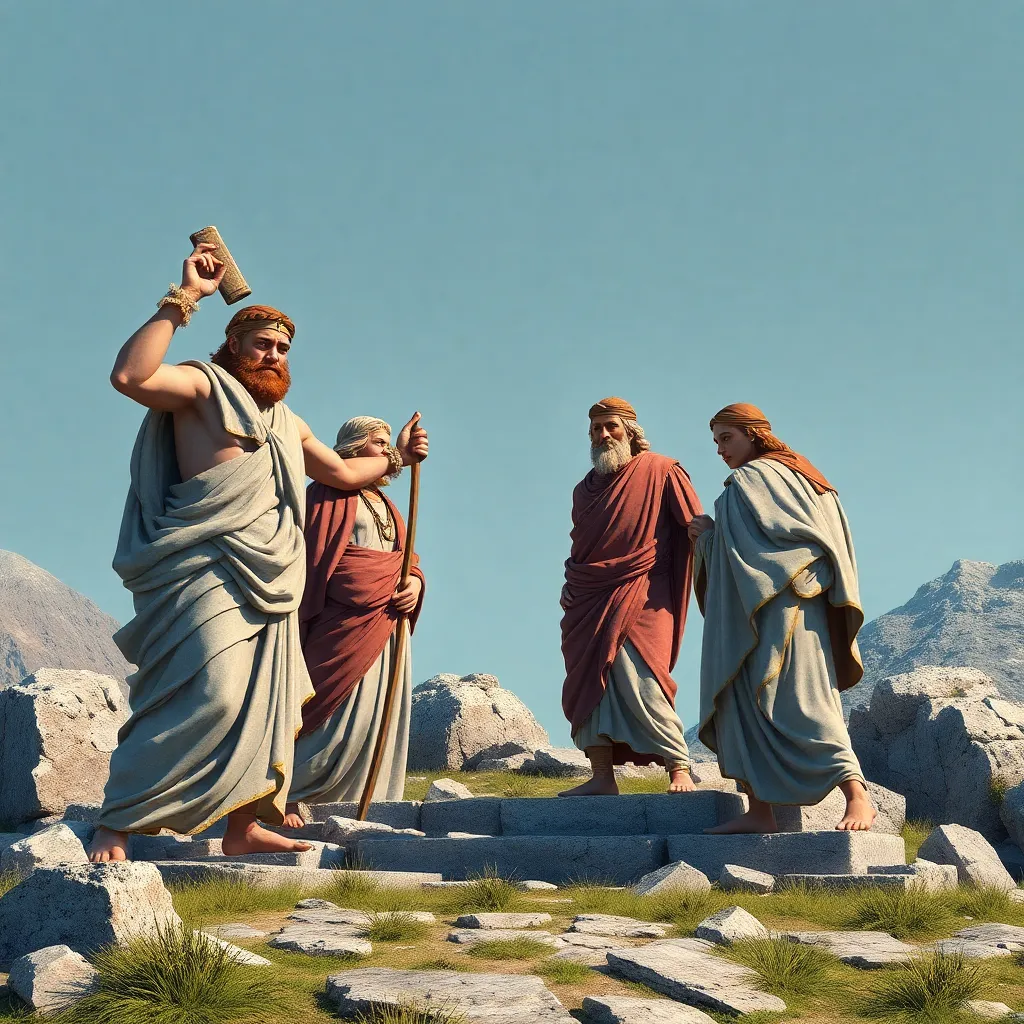The Interrelationship Between Greek Heroes and Their Communities
I. Introduction
Greek mythology is rich with tales of heroes whose exploits have transcended time, offering insights into the values and beliefs of ancient Greek culture. Greek heroes, such as Achilles, Hercules, and Odysseus, are often characterized by their extraordinary abilities, noble lineage, and tragic flaws. They are not merely figures of personal achievement; they encapsulate the aspirations and ideals of their communities.
The significance of community in Greek culture cannot be overstated. Ancient Greeks viewed themselves as part of a collective rather than as individuals. The interrelationship between heroes and their communities highlights a profound connection where heroes are both shaped by their societies and, in turn, shape those societies.
This article aims to explore the symbiotic relationship between Greek heroes and their communities, examining how these figures serve as symbols of communal identity and how the support and expectations of their communities influence heroic deeds.
II. The Role of Heroes in Greek Mythology
Heroes in Greek mythology possess distinct characteristics and traits that set them apart from ordinary mortals. They are often depicted as:
- Brave and courageous
- Possessing supernatural abilities or divine heritage
- Endowed with a sense of justice and morality
- Inclined to face overwhelming odds
Common narratives surrounding these heroes often revolve around their quests, battles against formidable foes, and journeys that lead to personal growth. Archetypes such as the tragic hero, the reluctant hero, and the hero’s journey are prevalent throughout Greek myths.
The impact of heroism extends beyond individual accomplishments; it shapes societal values and norms, encouraging traits such as bravery, loyalty, and honor among community members.
III. Heroes as Symbols of Community Identity
Greek heroes often embody communal ideals and aspirations, serving as reflections of the values held dear by their societies. For instance, Theseus is revered in Athens as a symbol of unity and civic responsibility. His legendary deeds, such as defeating the Minotaur, are emblematic of the Athenian spirit.
Local heroes often hold significant importance in their communities, as they:
- Inspire pride and a sense of belonging
- Represent the values and virtues of their people
- Provide role models for future generations
The role of myth in reinforcing community bonds cannot be understated. Myths serve as a narrative framework through which communities can express their identity, history, and shared values, creating a sense of collective memory that strengthens societal ties.
IV. Community Support and Heroic Deeds
The relationship between heroes and their communities is reciprocal; while heroes often undertake quests for the benefit of their people, communities provide crucial support that enables these heroic deeds. This support can manifest in various ways:
- Offering resources for a hero’s journey
- Providing emotional and moral encouragement
- Making sacrifices to ensure the hero’s success
Instances of communal sacrifices are prevalent in heroic narratives. For example, during the Trojan War, the collective effort of the Greek city-states to support their heroes illustrates how communities rally behind their champions.
Furthermore, the celebration of heroes through festivals and rituals serves to honor their contributions and strengthen communal identity. Events such as the Panathenaea in Athens not only celebrated the goddess Athena but also honored the city’s patron hero, Theseus.
V. The Consequences of Heroic Actions on Communities
While heroic actions often yield positive outcomes for communities, they can also lead to negative repercussions. Positive outcomes include:
- Unity among community members
- Increased pride and a strengthened cultural heritage
- Inspiration for future generations
However, the pursuit of heroism can also result in:
- Jealousy among peers
- Conflict arising from differing interpretations of heroism
- The burden of expectations placed on heroes and their families
A case study exemplifying these dynamics is the story of Achilles during the Trojan War. His anger and withdrawal from battle not only impacted the Greek forces but also reflected deeper issues within the community, such as pride and the consequences of personal grievances on collective efforts.
VI. The Evolution of Heroic Ideals Over Time
The perception of heroism has evolved significantly from ancient to modern times. Factors contributing to this evolution include:
- Changes in societal values
- Historical events that reshape narratives
- The influence of literature and art on the portrayal of heroes
Modern interpretations of Greek heroes often highlight their complexities, focusing on their internal struggles, moral dilemmas, and the societal pressures they face. This shift reflects a broader understanding of heroism that encompasses not just deeds of valor but also the human experience.
The enduring relevance of Greek heroes in contemporary society is evident in literature, film, and popular culture, where their stories continue to resonate with audiences, often serving as metaphors for personal and societal challenges.
VII. Comparative Analysis with Other Cultures
When examining Greek heroes, it is valuable to compare them with heroes from other cultures. While similarities exist, notable differences also arise:
- Similarities include the concept of the hero’s journey and the embodiment of communal values.
- Differences may manifest in the attributes ascribed to heroes, with some cultures favoring spiritual or moral leaders over physical warriors.
The universal theme of heroism across civilizations underscores a shared human experience, where heroes symbolize the aspirations, struggles, and values of their communities. Lessons learned from the interrelationship between heroes and communities worldwide highlight the importance of understanding the social context in which these figures emerge.
VIII. Conclusion
In summary, the interrelationship between Greek heroes and their communities is a multifaceted phenomenon that illustrates the profound impact of heroic narratives on societal values and identity. Through exploring the roles, support systems, and consequences of heroism, we gain insights into the communal bonds that shape both heroes and their societies.
The enduring legacy of Greek heroes serves as a reminder of the importance of understanding these relationships in modern contexts, providing valuable lessons about the nature of heroism, community, and the shared human experience.




